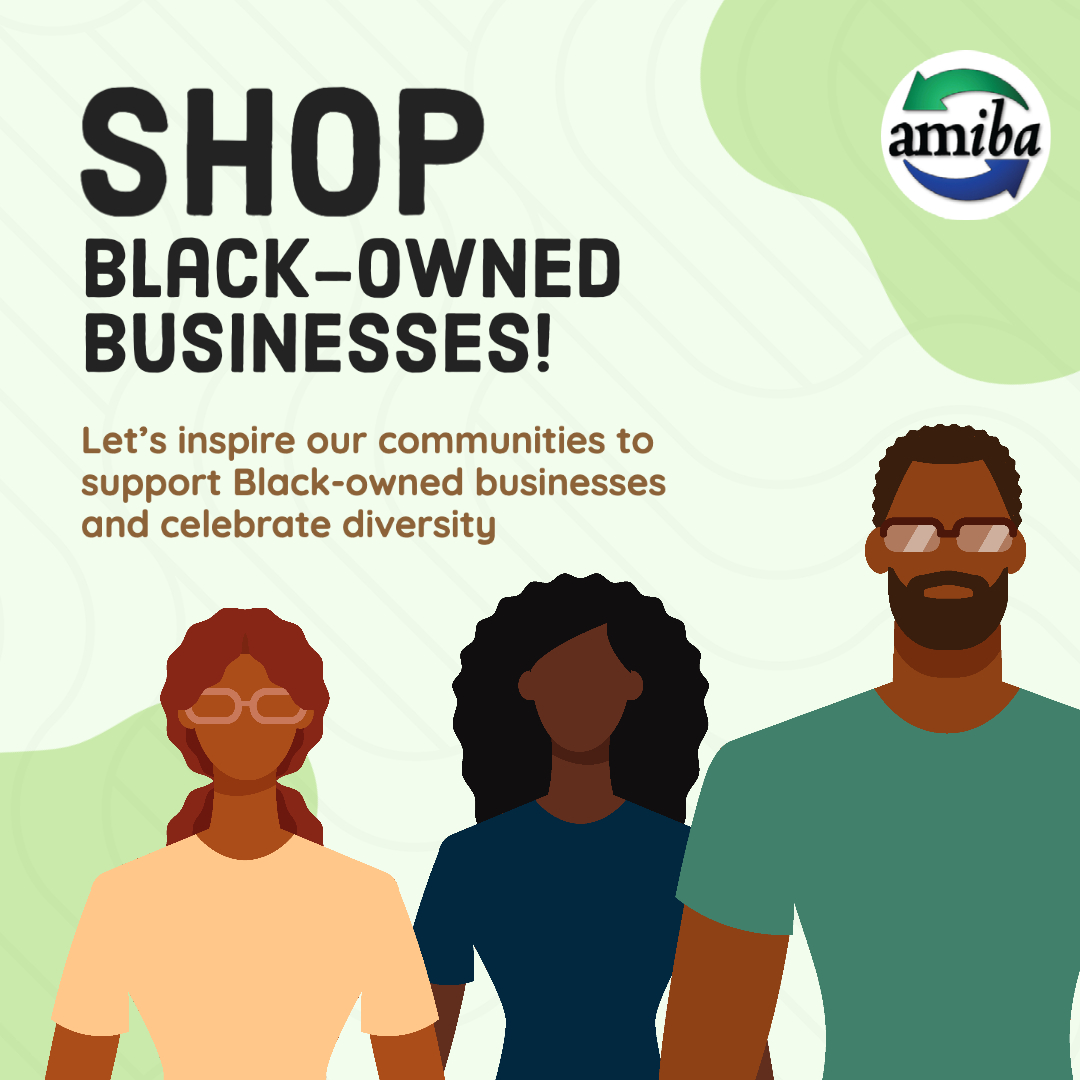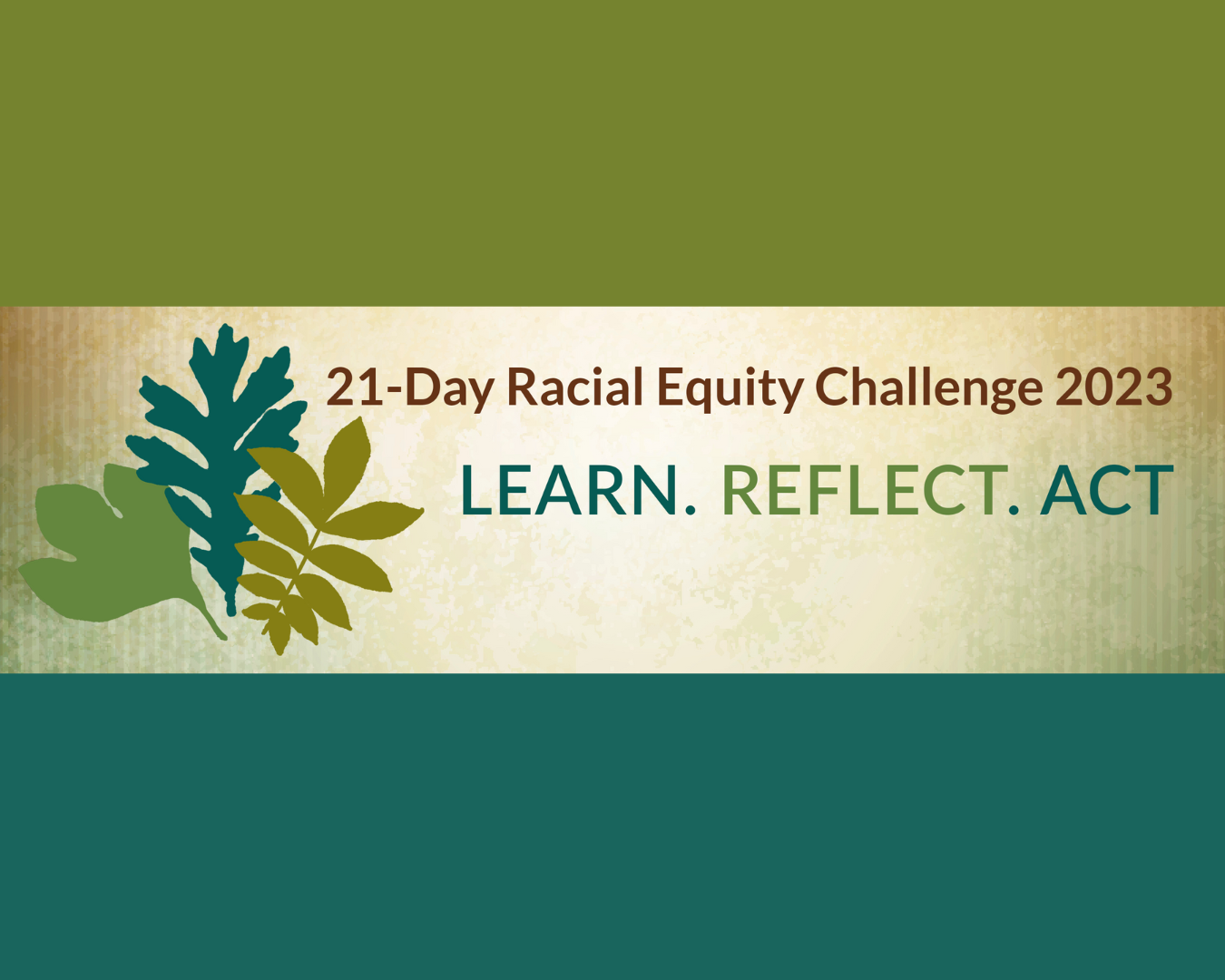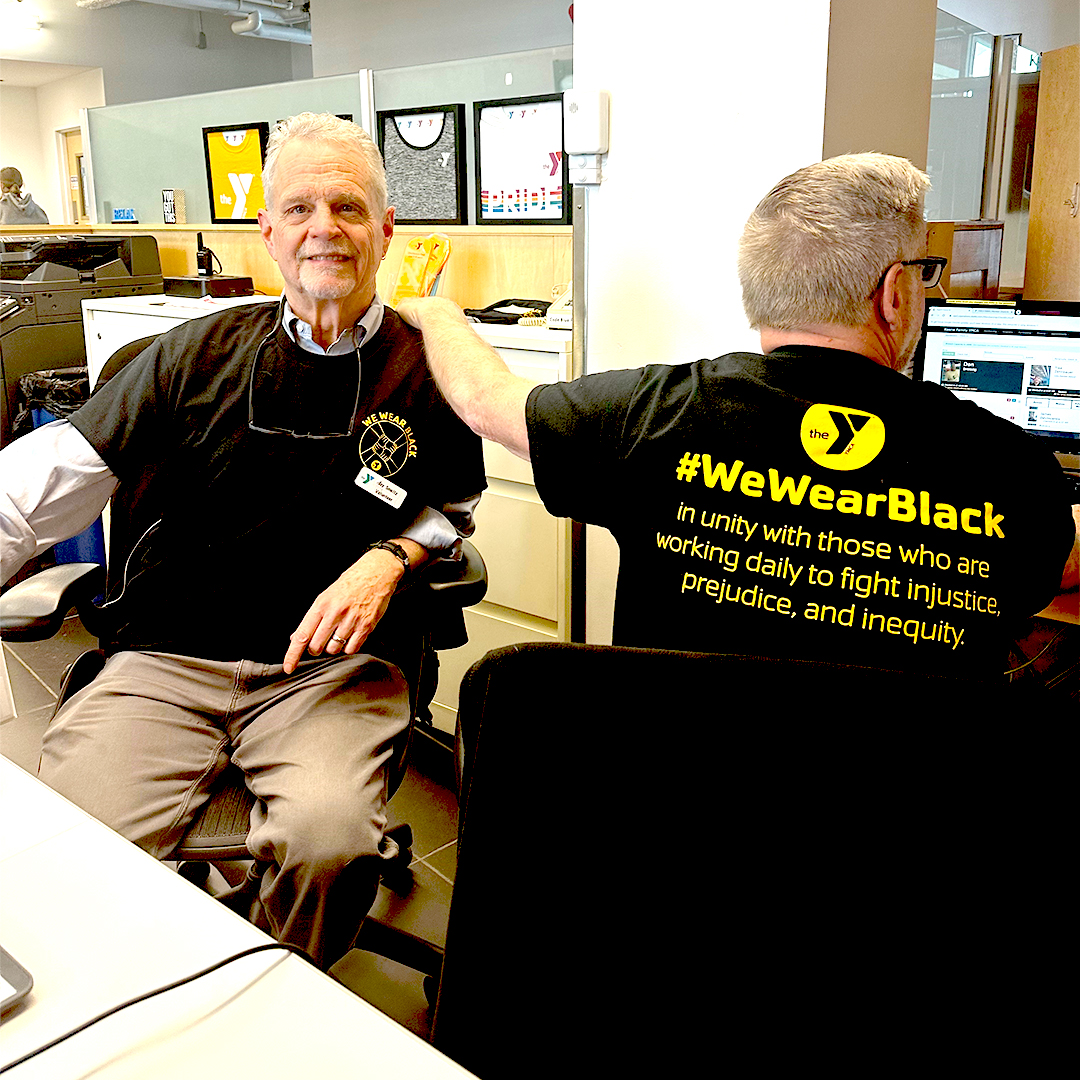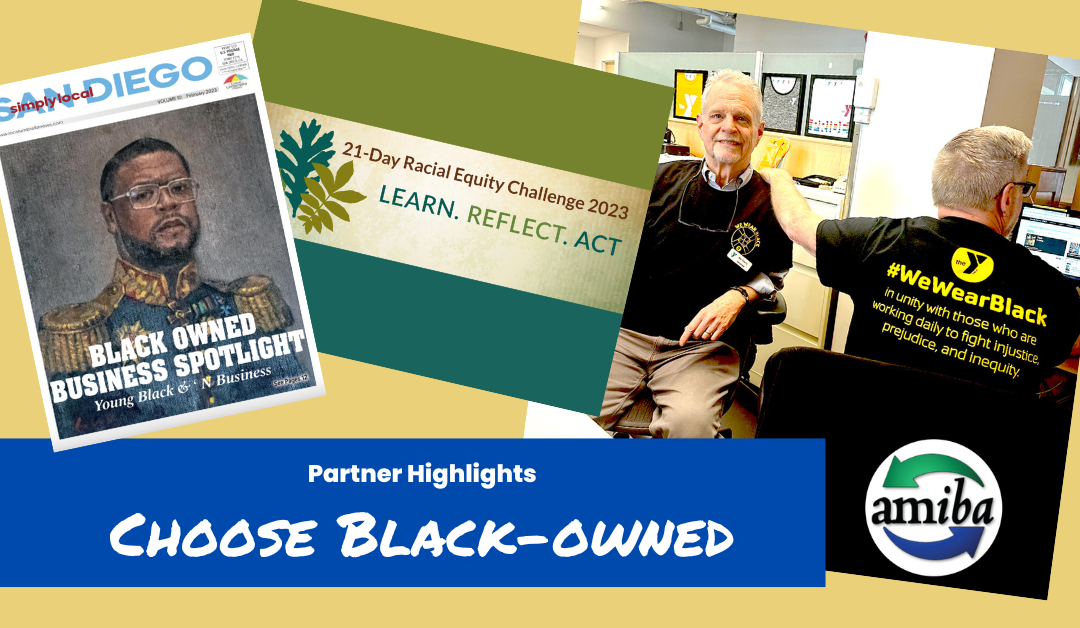Just 3% of U.S. businesses were identified as Black or African American-owned as of 2020, according to Pew Research. That’s despite 12.4% of the overall population being Black adults. More than half of those business owners were men.
While any type of entrepreneurship has its challenges, building a business remains even more difficult for Black owners across the country. Because of longstanding, systemic forms of oppression, Black entrepreneurs often begin with lower personal wealth. They also face extreme difficulty obtaining bank loans and other forms of critical capital (even when they have excellent personal credit).
Spotlighting Black-Owned Businesses
 That’s why making a concerted effort to purchase from and support Black-owned businesses has such a profoundly positive impact on local communities. During the American Independent Business Alliance’s (AMIBA) Choose Black-Owned Month in February 2023, Local Umbrella Media in California took the opportunity to spotlight Young Black & ‘N Business (YB&’NB), “a social networking community devoted to the Overlooked and Underserved majority.”
That’s why making a concerted effort to purchase from and support Black-owned businesses has such a profoundly positive impact on local communities. During the American Independent Business Alliance’s (AMIBA) Choose Black-Owned Month in February 2023, Local Umbrella Media in California took the opportunity to spotlight Young Black & ‘N Business (YB&’NB), “a social networking community devoted to the Overlooked and Underserved majority.”
Spearheaded by 35-year-old Roosevelt Williams III, who grew up in San Diego, YB&’NB focuses on helping Black business leaders achieve financial freedom. Williams intends to implement a 100-year plan devoted to developing generational wealth, as well as increasing financial literacy and homeownership numbers for minority community members.
Brad Weber, CEO of Local Umbrella Media, felt that Williams’ story was an excellent one to tell during Choose Black-Owned Month. Williams has an impressive resume that dates back years, from writing policies to benefit low and moderate-income communities to acting as Liaison for the San Diego Youth Commission.
His story, which ran in multiple editions across 30 different areas of San Diego, received a phenomenal response. “People were knocking on Williams’ door asking for his autograph, so it did its job,” Weber said.
Throughout the month of February, Weber also published a tribute to Black-owned restaurants, as well as multiple features of Black business owners, like Lude Ricard, who founded a medical consulting firm that helps veterans with VA disability claims, and Clarice Christian, who opened CChrist Christian Bookstore after retiring as a registered nurse in nursing administration.
“We’ve always been about local businesses,” Weber described. “That’s why I joined AMIBA.” Because his publications are monthly, he amplifies AMIBA’s campaigns to raise awareness about powerful mindset shifts we all can make, like choosing Black-owned, woman-owned, sustainable and more. “We like supporting these themes. It gives us good ideas, too,” he said.
Weber grew up in a small town and traveled a great deal when he was younger. “You’d go into a new town and every place was unique,” he described. Now, he fears that just about anywhere you land looks like “Franchiseville.” “Not only does it hurt us economically; it just hurts the flavor of life. Let’s keep it unique and local,” he emphasized. For him, that starts with supporting local entrepreneurs and helping them develop more pride in their businesses.
Learn. Reflect. Act.
 Doing this work equitably requires people to step out of their comfort zones to evaluate which businesses and products they choose and why. Where is there room to have additional impact? That’s the kind of thinking the Southern Independent Booksellers Alliance (SIBA) has sparked with their annual Racial Equity Challenge, held for the third time in February.
Doing this work equitably requires people to step out of their comfort zones to evaluate which businesses and products they choose and why. Where is there room to have additional impact? That’s the kind of thinking the Southern Independent Booksellers Alliance (SIBA) has sparked with their annual Racial Equity Challenge, held for the third time in February.
In 2020, SIBA published an anti-racist statement outlining the organization’s commitment to standing “against racism and the injustices suffered by Black people in our country.” The statement came in the aftermath of the murders of George Floyd, Breonna Taylor, and Ahmaud Arbery and the ensuing protests nationwide.
The statement continued, “As an organization located in the South, we recognize racism is a part of our culture and it is our responsibility to be active allies to Black people, to continue having these conversations, digging deeper, and doing the work.” SIBA’s all-white staff and board took ownership of a lack of diversity and vowed to confront implicit bias.
Through their 21-day challenge, they invited SIBA booksellers, as well as anyone from the publishing industry to participate. Many have jumped on board, including the American Booksellers Association. “It’s been really heartening to see that response,” described SIBA’s executive director, Linda-Marie Barrett.
The initiative is based on the well-known habit-building challenge launched by Food Solutions New England, who were generously willing to share their framework. “21 days is this amount of time that can help create patterns of change,” Barrett explained. She noted that even if all people do is open their inbox and read the daily prompts, “that’s 21 days of reflection.”
The prompts build over the course of three weeks, asking booksellers to look at their own store and practices, the role of their bookstore in the community, and finally the broader industry. For instance, one prompt asks: “When you look at how you’re promoting certain titles on your site or in your store, who are the authors? Who do they represent?”
Sometimes the conversations are pretty eye-opening. “People have told us this prompts difficult but important conversations among staff about inventory, programming, and involvement in the community,” Barrett noted.
While February is a key time of participation each year in tandem with Black History Month and Choose Black-Owned Month, the challenge is available year-round by contacting SIBA. They’re also turning it into a module that can be easily accessed anytime. In addition, SIBA publishes a weekly column called “The Anti-Racist Bookseller” for reflections and ideas on confronting racism.
Standing Together
 YMCAs across the country have also doubled down in the last several years, expressing a strong commitment to becoming both anti-racist and multicultural organizations. A social media post from the Keene Family YMCA in Southern New Hampshire voiced, “Black History IS American History. We should be celebrating and recognizing the incredible contributions of Black Americans to our nation, not just during the month of February, but ALWAYS.”
YMCAs across the country have also doubled down in the last several years, expressing a strong commitment to becoming both anti-racist and multicultural organizations. A social media post from the Keene Family YMCA in Southern New Hampshire voiced, “Black History IS American History. We should be celebrating and recognizing the incredible contributions of Black Americans to our nation, not just during the month of February, but ALWAYS.”
The post shared photos of team members sporting #WeWearBlack tees across the organization to bring awareness to systemic racism and the oppression of Black people. “We are so proud of our incredible staff for standing with us as we continue on this journey,” they wrote.
In addition, the Keene Family YMCA hosts the Monadnock Diversity, Equity, Inclusion & Belonging Coalition (MDEIB) to bring together community members actively working toward inclusion. The Coalition was developed in response to nationwide violence against people of color and was based on a Racial Justice & Community Safety Committee Report compiled by the city of Keene, New Hampshire. The committee recognized the Y as a place that could house the coalition and help drive it forward.
The report noted, “The Committee held open forums during which people of color shared personal experiences in schools, in the workplace and in public settings that illustrated the realities of both blatant and implicit bias in our community.” Throughout the process, community members focused on three buckets: Community Education and Schools, Laws, Policy and Policing, and Social and Community Justice.
“A recurring acknowledgment amongst both Committee members and the public is that there is a need for everyone to understand that everyone is harmed by racism,” the report described. The report’s key recommendations were to identify implicit bias, open dialogue, and educate the community.
MDEIB aims to advance equity through community leadership and advocacy activities that support these goals. “We believe the work of the MDEIB is critical to the future health and vibrancy of the region,” they shared.
“This is work that all of us will be doing for the rest of our lives to be allies and to make positive change,” Barrett said.
Learn more about AMIBA’s Choose Black-Owned campaign in February and sign on as a partner today — it’s free!

